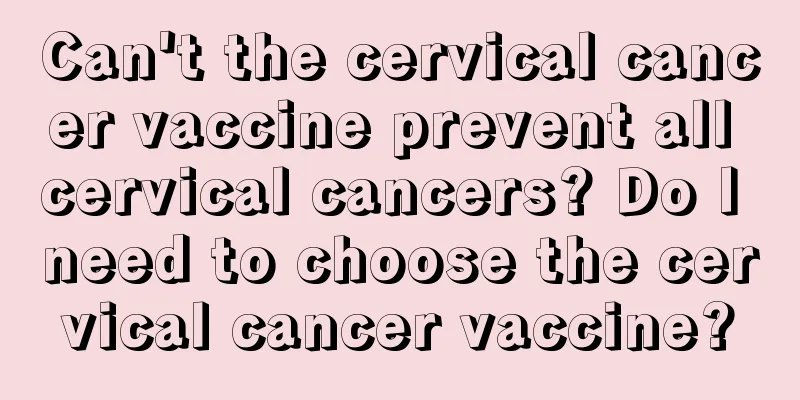What does the survival rate of nasopharyngeal carcinoma relate to?

|
The survival rate of nasopharyngeal carcinoma is generally related to the period of treatment. If nasopharyngeal carcinoma is treated in the early stages, the survival rate will be much higher. There are many factors that affect survival rate, so there is no exact answer. Patients should accept treatment with a good attitude and resist the disease. Nasopharyngeal carcinoma is one of the common cancers in my country. It is estimated that 80% of nasopharyngeal carcinoma cases in the world occur in my country. Radiotherapy is the main treatment for nasopharyngeal carcinoma. Retrospective data from a large number of cases at home and abroad show that the average 5-year survival rate of early-stage nasopharyngeal carcinoma is around 50%, while that of mid- and late-stage patients is only 20% to 30%. The cure rate of nasopharyngeal carcinoma in the early and middle stages, for patients with middle and late stage nasopharyngeal carcinoma, mainly depends on whether the treatment method is appropriate and the patient's physical condition. The main treatments for advanced nasopharyngeal carcinoma include radiotherapy, chemotherapy and traditional Chinese medicine. Radiotherapy is still the first choice for treating mid- to late-stage nasopharyngeal carcinoma. It has a more direct killing effect on cancer cells, but it can also cause damage to normal cells. Therefore, the dose, irradiation range, and number of irradiation courses should be carefully selected based on the extent of the lesion and the body's functions. Combined chemotherapy is also one of the more commonly used methods for the treatment of mid-to-late stage nasopharyngeal carcinoma. It is often combined with radiotherapy and its effect is better than radiotherapy or chemotherapy alone. In addition, in view of the toxic side effects of radiotherapy and chemotherapy on the human body, traditional Chinese medicine can be combined with the treatment of middle and late stage nasopharyngeal carcinoma to enhance efficacy and reduce toxicity. For patients with advanced nasopharyngeal carcinoma who have a wide range of metastasis, weak physical functions, and can no longer tolerate chemotherapy, traditional Chinese medicine can be used for conservative treatment. Although the short-term effect is not as obvious as chemotherapy, the long-term effect is good, and it plays a significant role in improving the quality of life and prolonging survival. In addition, it is also related to the patient's physical function to a certain extent. Only with good physical function and strong immunity can one resist the development of cancer and tolerate various drug treatments. Therefore, improving immune function and enhancing resistance to tumors is extremely important for NPC patients, especially those in the middle and late stages of the disease. In terms of diet, nasopharyngeal cancer patients should eat easily digestible foods rich in nutrients such as protein, vitamins, amino acids, etc. during radiotherapy and chemotherapy; quit smoking and drinking, avoid spicy and irritating foods; and avoid eating overly dry and rough foods. You can also enhance your immune function by taking Chinese medicine that has the effect of nourishing the spleen and kidneys. |
<<: What is the treatment for nasopharyngeal cancer?
>>: What kind of food is geoduck
Recommend
Before washing, twist your waist
Recently, I have found many patients in the outpa...
How much does benign teratoma cost?
I wonder if you have ever had this experience, th...
What causes bitter taste in the mouth and nausea?
If you have a bitter taste in your mouth and feel...
Acupuncture treatment for stroke sequelae has very good results
The sequelae of stroke include facial paralysis, ...
Bruising on toenails after running
Many people may have local congestion in various ...
What nutrients does tomato beef meatball soup include?
Many people are used to eating beef hotpot, and a...
The important thing for diagnosing lumbar disc herniation is
Most people will experience lower back pain, espe...
What are the symptoms of middle and late stage lung cancer? Check out the symptoms of middle and late stage lung cancer
Lung cancer is a very serious disease that causes...
What is the current situation of thyroid cancer in my country
Because more and more people are suffering from c...
How to check for endometrial cancer
Endometrial cancer is a serious gynecological dis...
To achieve early detection of nasopharyngeal carcinoma, we must pay attention to the following aspects
In life, nasopharyngeal carcinoma has affected th...
What should you pay attention to when dealing with scalds caused by boiling water
Being scalded by boiling water is believed to be ...
How to make sweetened red beans without breaking the skin
Red beans can be used to make various snacks and ...
What are the common sites of melanoma? What are the symptoms of melanoma?
The surface of the skin is a common site for mela...
Can lymphoma be cured? How to cure it?
Lymphoma often occurs in young people. If you are...









